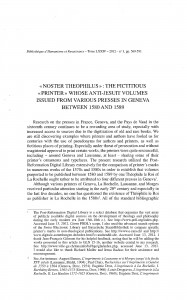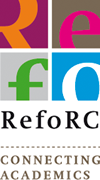We recently received a query about accessing digital sources internationally. Here’s a bit of my response that may be of more general interest:
First, membership in professional societies can provide some access to digital sources. For example, the AAR provides access to journals via JSTOR. For a limited time AAR membership also allows access to Bloomsbury/T&T Clark volumes. Membership in the Renaissance Society of America allows access to EEBO. Obviously the Post-Reformation Digital Library was conceived in part to address the need for digital access to primary source material. Many of these societies have reduced rates for student membership.
Second, you can register for limited access to some databases for free. For example, registering with JSTOR allows a certain number of free downloads and access to some content across the site. Similar programs are likely to be found with other databases and aggregators.




